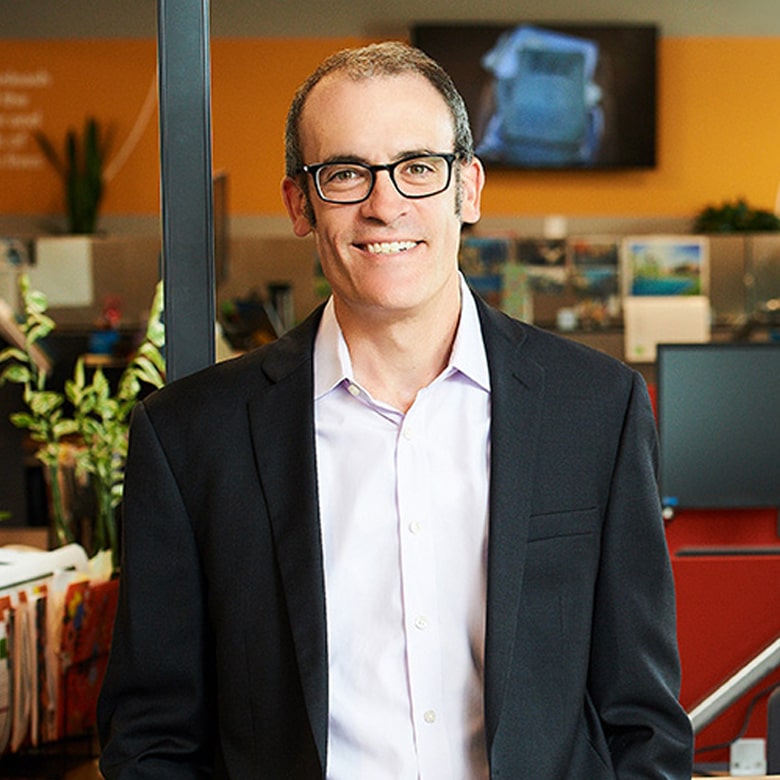With more and more businesses returning to the office in the coming months (whether full-time or hybrid), employers and leaders are fielding increasingly pointed questions from their employees about companies’ commitment to addressing broader societal challenges—even when those challenges fall outside of the company’s “traditional” bottom-line products and services.
We shouldn’t be surprised. With the world in a state of seemingly never-ending upheaval, employees are finding it increasingly challenging to segregate work from “everything else.”
This trend tracks with well-established patterns that show younger staff have significantly different expectations when it comes to how, whether, and when their employers engage in political and social issues. Whereas retiring Baby Boomers and current Gen X leaders grew up (professionally) in environments where “work is work” and everything else was expected to sit outside of the workplace, younger employees continue to pressure leadership to break down siloes and tackle broader societal challenges within the four (proverbial) walls of the office. The return to an office setting amid such a dynamic period sets the stage for tension but also opportunity, particularly as companies rediscover important tools to meet employee enthusiasm for social action: corporate giving and employee volunteer efforts.
Reimagining the toolbox
For too long, corporate foundations and employee engagement programs were the purview of either marketing or human resources departments and were often box-ticking exercises. But savvy companies and leaders are quickly waking up to the potential for these initiatives and investments to generate triple bottom line outcomes: increased employee retention and recruitment, stronger brand presence in the marketplace, and a means for contributing actively to larger societal challenges. This recognition reflects the growing emphasis many companies (and their staff) are placing on environmental, social, and governance (ESG) factors, as well as the growing demand for meaningful diversity, equity, and inclusion in the workplace. While all these aspirations are journeys rather than destinations, they are quickly becoming C-suite priorities for many companies as leaders find unique ways to meet employee demand for action and change.
Shifting the focus of corporate giving
Corporate foundations are evolving quickly in many cases in response to the current moment. One leader of a major corporate foundation recently described to me how the company’s giving had shifted radically since 2020, pivoting away from acting as a de facto slush fund for leaders’ pet projects toward meaningful, deep investments in organizations and programs addressing racial equity issues in the U.S. Not only did this feel like the “right” thing to do, but staff loved it and reported increased job satisfaction when reflecting on the renewed commitment their employer was making.
Aligning employee volunteerism with service offerings
Similarly, employee volunteer programs, historically viewed inside of companies as a “nice to have” program, are taking on increasing prominence, particularly when channeled and transformed into in-kind and pro-bono-type programs that align with a company’s core business and expertise. For example, instead of employees of a technology company picking up trash at a local park (while entirely laudable), they began to offer up free data science analytical support to nonprofit organizations in the area. This was a much more impactful use of employee and company time and resources and resonated strongly with employees. It helped build the company’s brand within the local community, generated significant employee goodwill that aided retention in a time of fierce competition for talent, and advanced the work of terrific charitable organizations working on some of the thorniest social issues.
There’s certainly no one-size-fits-all approach to reimagining and redeploying corporate giving and employee engagement efforts during such a unique moment in history. But forward-looking leaders are moving these investments from the sidelines to center stage, realizing that companies (and their employees) can no longer thrive in societal or political vacuums.
This article was originally posted on Fast Company.

Nathaniel Heller is Geneva Global’s Managing Director and oversees all of the firm’s client-facing work and deliverables. Those services range from supporting philanthropists as they identify priority areas for investment, including potential co-funders and implementing partners; developing operational strategies to execute high-impact philanthropic programs; running programs in high-need geographies; and distilling successes, failures, and insights to inform future philanthropic giving. Nathaniel works closely with all of Geneva Global’s delivery teams to ensure that our clients’ philanthropic investments achieve maximum impact and return on investment.
You can reach him at [email protected], read his full bio here, and visit his LinkedIn profile here.
Additional blogs by Nathaniel:
- Three seismic shifts that will impact philanthropy in 2022
- Philanthropy in an Era of Hard Power
- Why Dr. Maribel Morey’s “White Philanthropy” is an Essential Read for Philanthropy Advisors
- Imagining the Program Officer of the Future
- A New Mindset for Philanthropists
- How We Shift the Status Quo in Philanthropy
- What No-Minimum Donor Advised Funds Could Mean for the Future of Philanthropy
- Do Foundations Need Program Officers After All?
- Tackling the Whiteness of Mass Participation Fundraising in the U.S.
- The Strategic Philanthropist’s Approach to COVID-19


